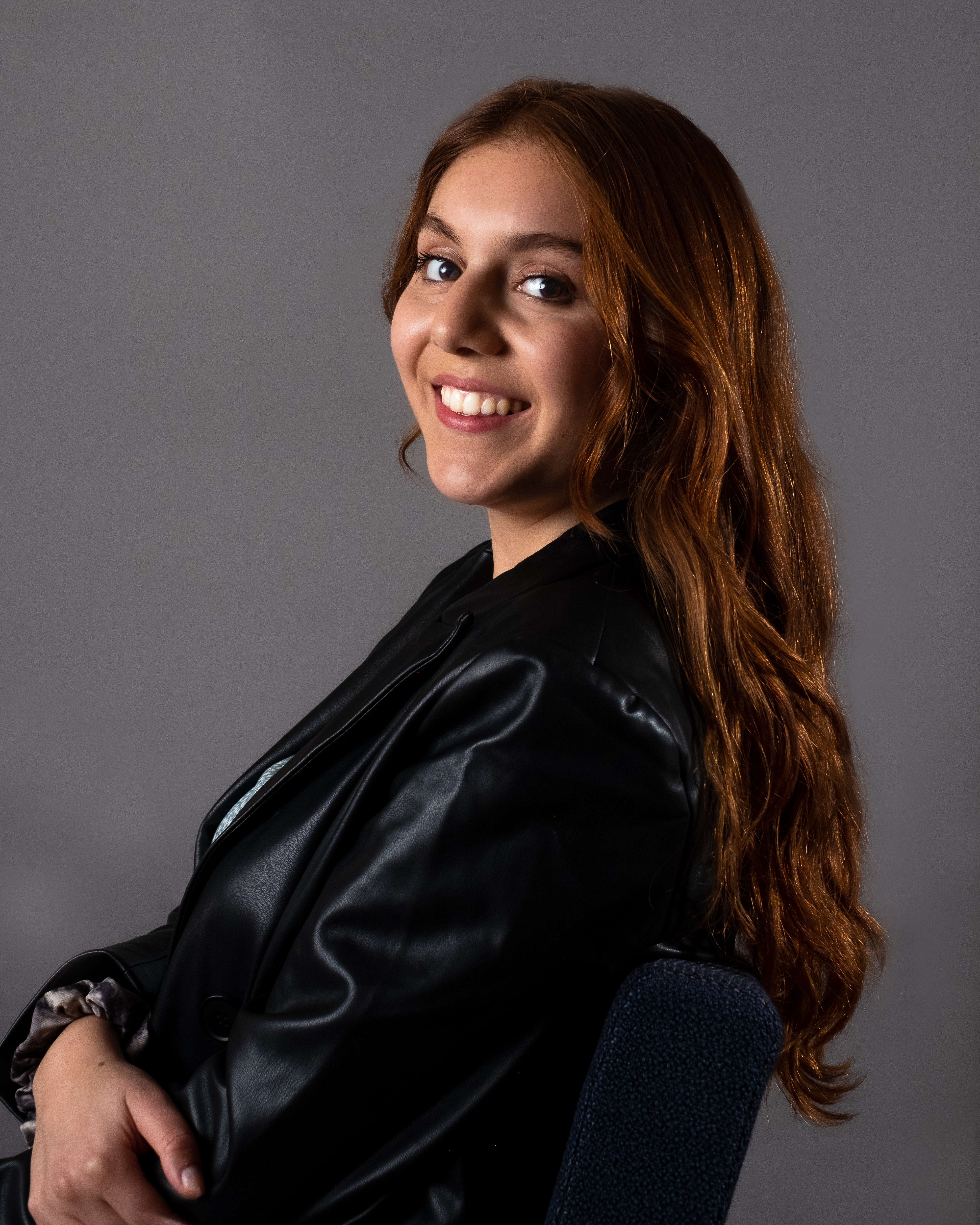Emma Tavangari (she/her)

Title: Class of 2023
“My mom is Jewish, and my dad is Baha’i, so they didn’t raise me in one particular religion, and before college, I didn’t identify with specific cultural or religious aspects. My Jewish roots connect to my family’s immigration story: my mom and grandparents left the Soviet Union in the early ‘80s due to anti-Semitism. That story was an integral part of my upbringing; however, the religious aspect of Judaism wasn’t.
In high school, I remember having a conversation about both of my parents’ religions, and my mom expressed hope that I believe in something one day. I remember questioning how I would just choose one religion. I felt like by choosing Judaism or Baha’i, I’d betray one of the two most important people in my life, any way you slice it. But then, when I got to college, the Jewish world really opened up. The community was so welcoming, making it easy to find my place, and the more I got involved, the more natural it felt. Before long, my understanding of Judaism evolved from an immigration story to a deeper connection with the culture, religion, and community.
My introduction to Judaism began through my work with Crafting Consent, a Jewish space aligned with my values around consent, feminism, and social justice. By entering this space, I built upon my Jewish identity and felt more comfortable exploring my Jewishness. I believe that the connection between progressive values and Judaism is essential, and I credit the Berkeley Hillel and the Jewish community for prioritizing social action and activism, which allowed me to discover my Jewish identity. Shabbat has also significantly impacted how I see Judaism and community building. It influenced how I think about gathering and community and my desire to lead in building it.
As a Former Soviet Union Jew, I recognize that the Diaspora’s relationship with the Soviet Union greatly influenced my Jewish identity. However, I have pride in the intermixing of my ethnic/cultural/political identities, and I feel like I can connect with my ancestry and everyone else’s that I’m in community with by participating in traditions practiced for generations before me. Although there’s no word to describe this feeling of joy in English, the German language has a term for this feeling, and I have a story to share that exemplifies this idea. I remember coming home, and my grandma was trying to recall a traditional dessert that her family made during Rosh Hashanah in her village before the Soviet era. I found the recipe online, which was in Cyrillic, and we started making it together. It was really exciting for her to connect with something that felt like it was from an era that had passed. As we made the recipe, she began sharing stories about her childhood and how her family’s religious practices were affected when they moved to Minsk, a bigger city where it became harder to continue their traditions. Experiencing my grandma’s connection with her past like this was super validating. I felt affirmed that there is something beautiful and joyful in continuing rituals passed down for generations, even if we may not know the person who started them. That’s been an immense joy for me in this experience.
Through my increased involvement in Judaism, I have started to share and connect with my family’s Jewish practices. For example, I attended a megillah reading and realized that I was likely the first person in my family to have heard these words in the past few generations. That felt like a revival of my family’s history. This connection to my Soviet history makes it even more meaningful because it feels like a Jewish Renaissance is happening within my family lineage. It’s really cool to play a part in that and to feel like it’s something my family is grateful for is astounding.”
